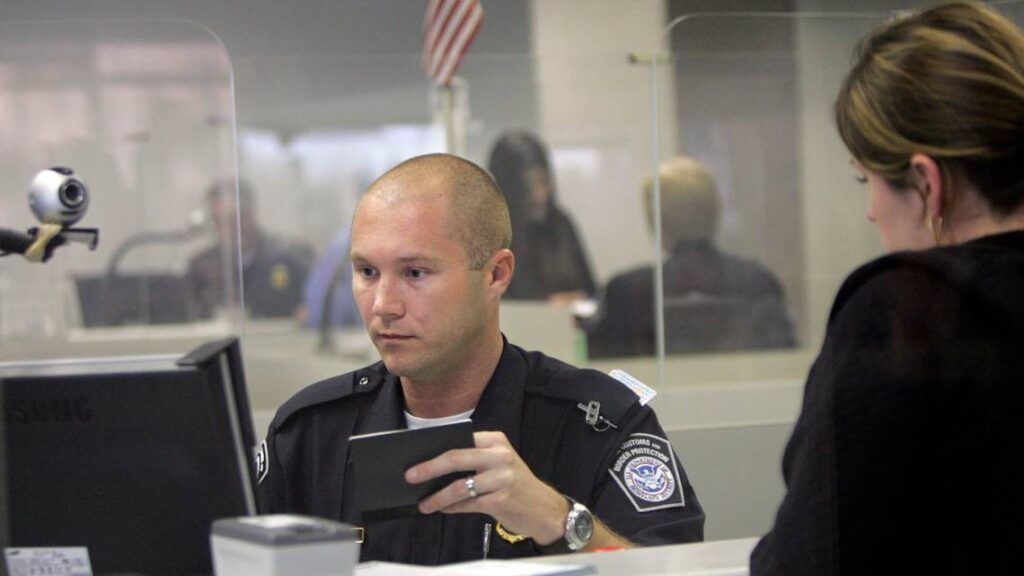MIAMI — The Biden administration has temporarily halted a humanitarian parole program that has allowed nearly half-a-million nationals from Cuba, Venezuela, Haiti and Nicaragua to live and work in the United States amid concerns of fraud.
A Department of Homeland Security spokesperson did not specify what led to the halt. But sources familiar with the issue told the Miami Herald the decision is the result of fraud alerts involving U.S.-based individuals seeking to get their friends and family approved under the program.
“DHS has review mechanisms in place to detect and prevent fraud and abuse in our immigration processes. DHS takes any abuse of its processes very seriously,” said the spokesperson. “Out of an abundance of caution, DHS has temporarily paused the issuance of advanced travel authorizations for new beneficiaries while it undertakes a review of supporter applications.”
The spokesperson added that DHS will restart application processing as quickly as possible with “the appropriate safeguards.”
Fox News first reported the pause and its relation to potential fraud. Some 30,000 applications will be manually reviewed and any discrepancy will lead to the applications being invalidated, a source told the Miami Herald. Late last year, immigrant advocates raised alarm over the possibility of fraud amid rumors within immigrant communities that people were paying thousands of dollars to get their approval moved up in the program.
To enter the United States through the two-year humanitarian parole program, a sponsor must first commit to financially backing a potential beneficiary while they are living in the United States. The applicants from Cuba, Venezuela, Haiti and Nicaragua must have a valid passport to fly into a U.S. airport and pass security, background and health checks to receive approval to travel to the U.S. Once they reach an American airport, an officer decides whether to grant them parole. The spokesperson from DHS said the agency had not identified any issues related to the screening and vetting of beneficiaries.
People who have already received an advanced travel authorization will be allowed to fly to the U.S. However, any issues that arise with previously approved beneficiaries will be handled on a case-by-case basis.
Guerline Jozef, founder of Haitian Bridge Alliance, called the decision “ unfortunate” given that there are so many people, especially Haitians, “who have been waiting to get approval for protection.”
“We caution the community to make sure that all the information provided is correct that they do not try to change information to try to scam the system. We call on DHS to return to a full first-come first-served approval system to avoid these types of issues which are mostly due to desperation in extremely vulnerable situations,” Jozef told the Miami Herald.
Over 494,000 people from the four countries had flown to the United States through the end of June, according to government figures. That includes over 104,000 Cubans, roughly 194,000 Haitians, more than 86,000 Nicaraguans, and more than 110,000 Venezuelans.
DHS considers an average of 1,000 applications a day. Half are supposed to be chosen through a first-come, first-served basis and the other through a lottery type system. That has led to frustration among both sponsors and beneficiaries, some of whom have been waiting for more than a year-and a half to be approved for travel.
The DHS spokesperson said that the agency had not identified “issues of concern” related to beneficiaries and that these applicants were thoroughly screened and vetted before entering the United States.
“The multi-layered screening and vetting for advanced travel authorizations is separate from the screening of U.S.-based supporters,” said the spokesperson.
The Biden administration created the parole program as part of its attempts to curb irregular migration from the four countries, which are facing humanitarian and political crises.
The program, in effect for all four nationalities since early 2023, has been the criticized by GOP officials, who argue that its an overreach of executive authority and has overburdened states.
A group of Republican-led states took DHS to court over the program, claiming it had caused “irreparable harm.” But a federal judge in Texas dismissed the case in March, ruling that the states did not have standing. However, he said that the courts had yet not evaluated the lawfulness of the program.
By SYRA ORTEZ BLANES and JACQUELINE CHARLES/Miami Herald



